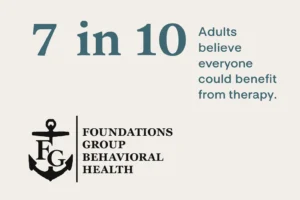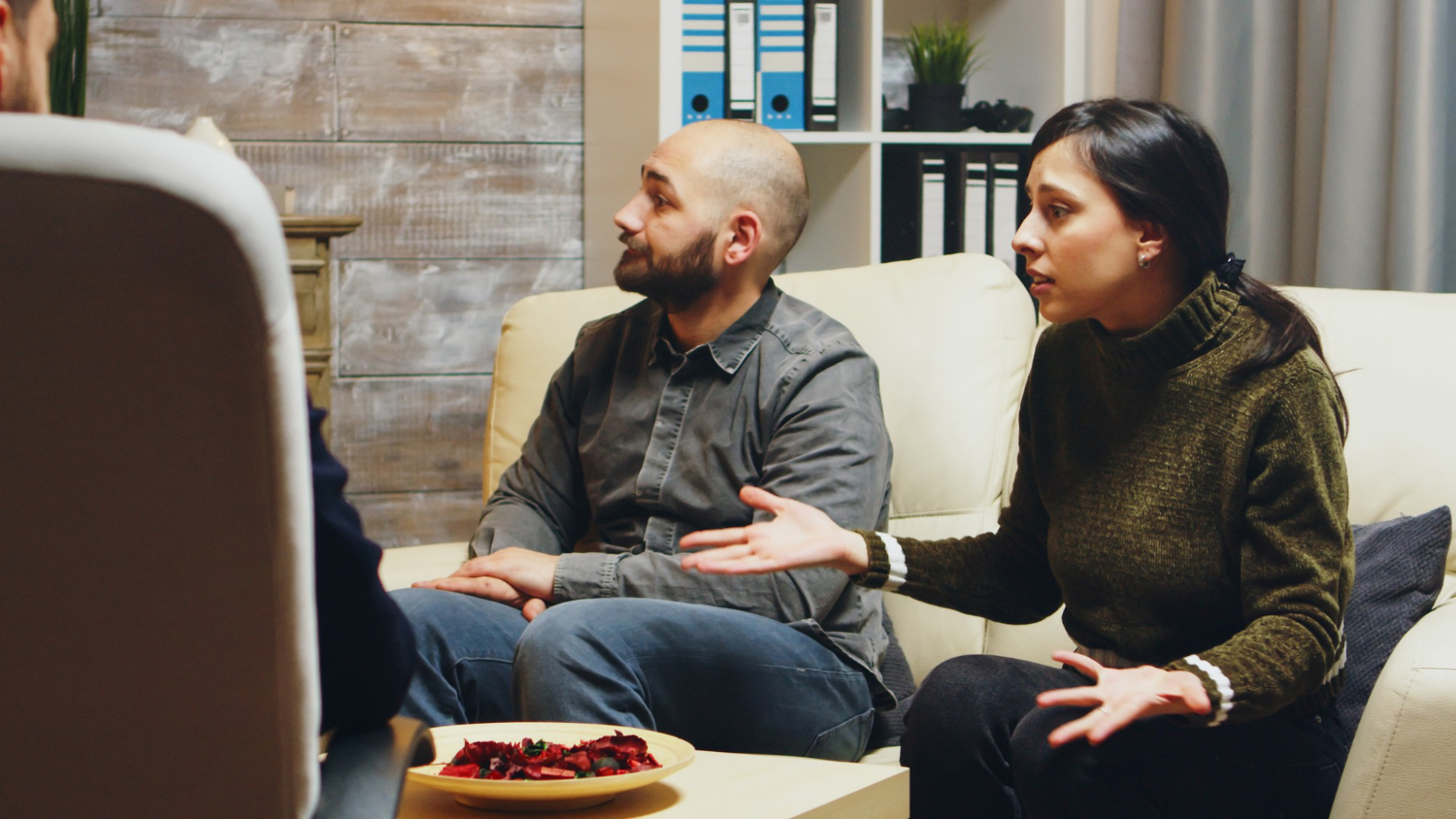You’re not falling apart. Not in a dramatic, world-on-fire kind of way.
But you are wondering. Quietly. Frequently.
Could therapy help me feel better? Would it be weird to go if I’m not in crisis? Am I just overthinking everything?
This moment—this pause, this curiosity—is the beginning. You don’t have to be “bad enough” to want support. In fact, some of the most meaningful therapeutic work begins in this exact place: the almosts. The not-quite-sures. The “I don’t want to wait until it gets worse.”
At Foundations Group Behavioral Health, we meet people in this space every day. They’re working, parenting, functioning—but also wondering if this is as good as it gets. If you’re sober curious or simply emotionally tired, this blog is for you.
Here’s how to try mental health therapy even if you’re not sure you “qualify.”
1. Challenge the Crisis-Only Mentality
You don’t need to be curled up on a bathroom floor to seek therapy.
There’s a persistent myth that therapy is for breakdowns, diagnoses, or trauma survivors. But here’s what we see every day in Cape Cod:
- People who feel emotionally flat but are otherwise “fine”
- High-functioning folks overwhelmed by life’s noise
- Parents who feel invisible in their own families
- Quietly anxious people who’ve adapted so well, no one notices
You don’t need a dramatic reason to want more peace, clarity, or capacity.
2. Ask Yourself the Real Question
Here’s a simple check-in that bypasses diagnostic labels:
“Would I want to feel like this for another year?”
If the answer is no—even if you can’t articulate why—therapy could be a supportive space to figure it out. Many people start not because they’re falling apart, but because they want more alignment. More ease. More access to their real selves.
3. Start with a No-Pressure, One-Time Consult
Trying therapy doesn’t mean signing up for a lifelong weekly session. Many providers (including us) offer:
- 15–30 minute free consultations
- Short-term therapy plans (e.g., 4–8 sessions)
- Flexible, on-your-schedule appointments
If you’re considering mental health therapy in Barnstable County, MA, we can help you explore options that meet your emotional and logistical needs—even if you’re still unsure about going all-in.
A one-time consult doesn’t commit you to anything. But it does give you real information about what it would feel like to start.
4. Know That You Don’t Need a Diagnosis to Get Help
This one is big.
Many people hesitate to reach out because they assume only “diagnosable” conditions qualify for care. But emotions don’t always fall neatly into categories. You can struggle without a label. You can want support without ticking every box.
Therapy can help with:
- Mild but persistent anxiety or overthinking
- Feeling stuck in life or relationships
- Identity questions or career changes
- Processing grief, change, or stress
- Simply having a safe space to hear your own thoughts out loud
5. Expect the First Few Sessions to Feel… Uncertain
Most people don’t walk into therapy with a perfect opening monologue. In fact, early sessions are often full of:
- Long pauses
- Tangents and over-explaining
- Awkward self-correction (“Sorry, that probably sounded dumb…”)
That’s not a sign of failure. It’s the messy beginning of something real.
Your therapist doesn’t expect polish. They expect honesty. It’s okay to start with, “I don’t even know what I need. I just know I don’t feel great.”

6. Don’t Wait for a Breakdown to Give Yourself Support
One of the hardest truths to accept is this:
You are allowed to want help before it gets unbearable.
You’re allowed to seek therapy when:
- You’re tired of being your own sounding board
- You want to stop spiraling over every small thing
- You’ve been “fine” for too long and it’s wearing thin
Some of our most successful clients in Falmouth, MA came to therapy before things collapsed. That doesn’t make them weak. It makes them wise.
7. Therapy Doesn’t Have to Be Deep, Dark, or Dramatic
Yes, some sessions go deep. But many focus on:
- Everyday stress patterns
- Communication tools
- Understanding your reactions
- Building routines that support mental clarity
It’s not all childhood trauma and emotional breakdowns. Sometimes therapy looks like laughing about your social anxiety at the grocery store—or realizing your “moodiness” is actually chronic overextension.
8. Feeling Uncertain Is Part of Starting
Still worried you’re being dramatic or wasting someone’s time?
That’s exactly what people say right before discovering therapy really does help.
They worry they’ll be told to “get over it.” They’re not.
They fear they’ll have to rehash every mistake. They don’t.
They wonder if they’ll just cry for 45 minutes. Sometimes—but it’s never the end of the story.
Your fears are welcome. Your questions belong. So do you.
Real Words from Real Clients
“I didn’t think I had trauma. But turns out, you don’t need a dramatic story to need support.”
– Therapy Client, Cape Cod
“I kept saying I was tired. But what I really meant was: I don’t want to carry all of this alone anymore.”
– Client, Barnstable County, MA
FAQ: Trying Therapy When You’re Not in Crisis
Do I need to have a mental illness to go to therapy?
No. Therapy is for anyone who wants more clarity, self-understanding, or emotional relief—regardless of diagnosis.
What if I don’t know what I want to talk about?
That’s okay. Many people start with general stress or vague unease. Your therapist will help guide the conversation until you feel more focused.
How do I find a good therapist for me?
Start by identifying what matters to you—cultural background, specialties, communication style. Most therapists are happy to answer those questions upfront.
Is therapy private? Will anyone know I’m going?
Yes. Therapy is confidential. No one will know unless you choose to share it. Your privacy is legally protected.
What if I can’t afford weekly therapy?
You can ask about sliding scale fees, insurance options, or alternate session frequency. Our team can help you explore flexible formats based on your situation.
Can therapy help if I’m sober curious or questioning substance use?
Absolutely. We specialize in working with people exploring their relationship to alcohol, cannabis, or other substances—without judgment or pressure.
If You’ve Been Wondering… That’s Your Sign
If you’ve thought even once, “Maybe therapy would help,” that’s your gut talking. You don’t have to justify it. You don’t need to hit a wall. You’re allowed to begin from a place of curiosity.
Trying mental health therapy isn’t a confession. It’s a quiet decision to explore how things could feel different. Better. Lighter.
Call 888-685-9730 to learn more about our mental health therapy services in Cape Cod, MA. You don’t need all the answers to take the first step toward feeling better.








